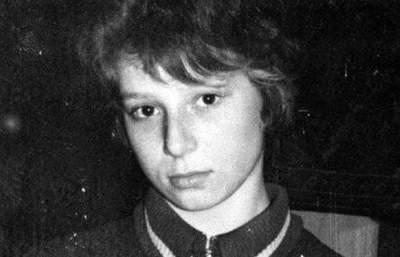Mental illness, which are included
It is not uncommon, if any problem with mental health is closely linked with other diseases. Sometimes this is due to lack of proper treatment, sometimes it plays a role genetics, and sometimes simply because of neurochemicals in the head, which are the cause of the disorder. The good news is that if you find that two or more diseases occur at the same time - it can help to adjust the treatment plan and make it even more effective. Here are some popular combinations of mental disorders with which therapists recommend that fight together.
Anxiety and depression

For people with constant anxiety disorder the risk of depression is quite high - and vice versa. Constantly anxious person feels a sense of hopelessness, and very irritable - and this may lead to comorbid depression.
Fortunately, anxiety, and depression can be treated. Sometimes, just enough to make lifestyle changes to increase the quantity and quality of sleep, learn meditation, but most often it is recommended to seek help from a specialist.
The traumatic stress and depression
Injury, such as loss of a loved one, rape, or even an accident can become a source of concern for a long time. PTSD, commonly known as the "Vietnam syndrome" causes obsessive thoughts, difficulty sleeping, and emotional numbness - and this can easily lead to depressive symptoms. A feeling that you can not control the situation, entails a sense of helplessness, and after some time - the desire to give up. To work with these two diseases must be complex to prevent violations in the usual way of life.
An eating disorder and depression

PSC is often the result of genetic inheritance, but sometimes it can be a reaction to stress or the presence of anxiety for a long time. Most often for depression and decreased appetite develops anorexia or cachexia, although there has been the development and bulimia. In any case, the basis of both diseases is not hunger, but a state of emotional discomfort.
The anxiety and attention deficit disorder
attention deficit disorder, for many people is accompanied by symptoms of anxiety. Restless people are easily fixed on the relevant stimuli, which is why there is the instability of attention and "disorderly" behavior, which can interfere with normal functioning. Anxious people tend to control the situation, and if such a possibility is not provided - their power only grows.
Obsessive-compulsive disorder and anxiety

According to the definition, OCD - is in itself a subtype of anxiety disorder. But it is important to know that it may occur with other types of alarms, for example, generalized anxiety disorder.
The stronger the anxiety grows, the more people want it to stop, and thus resorted to a variety of rituals and develops at his new habits. Brain fixate on triggers and anxiety turns into compulsion.
Depression and depending
Sometimes anxiety and depressive symptoms can be so severe that a person begins to use alcohol assistance or other psychoactive substances. Over time, what was once helped drown out intrusive thoughts, causes sleep problems, and require more resources. The use of these substances - nicotine to heroin - can interfere with daily functioning, cause problems in work and relationships.
Depression and insomnia

Although insomnia is not a mental illness, sleep problems are often caused by mental health problems, including depression and anxiety. A lack of sleep for a long time only exacerbates the symptoms. In such situations, it is difficult to independently determine what it was before - the chicken or the egg. In any case, if you notice in his sleep disorder - a serious reason to consult a specialist.
Borderline personality disorder and depression
People with borderline personality rastrojstvah often experience problems with relationships and may feel isolated from society. The same situation is leading to severe depressive episodes. In this case, it is recommended to work with BPD using behavioral therapy, which aims to learn to deal with emotions.













































